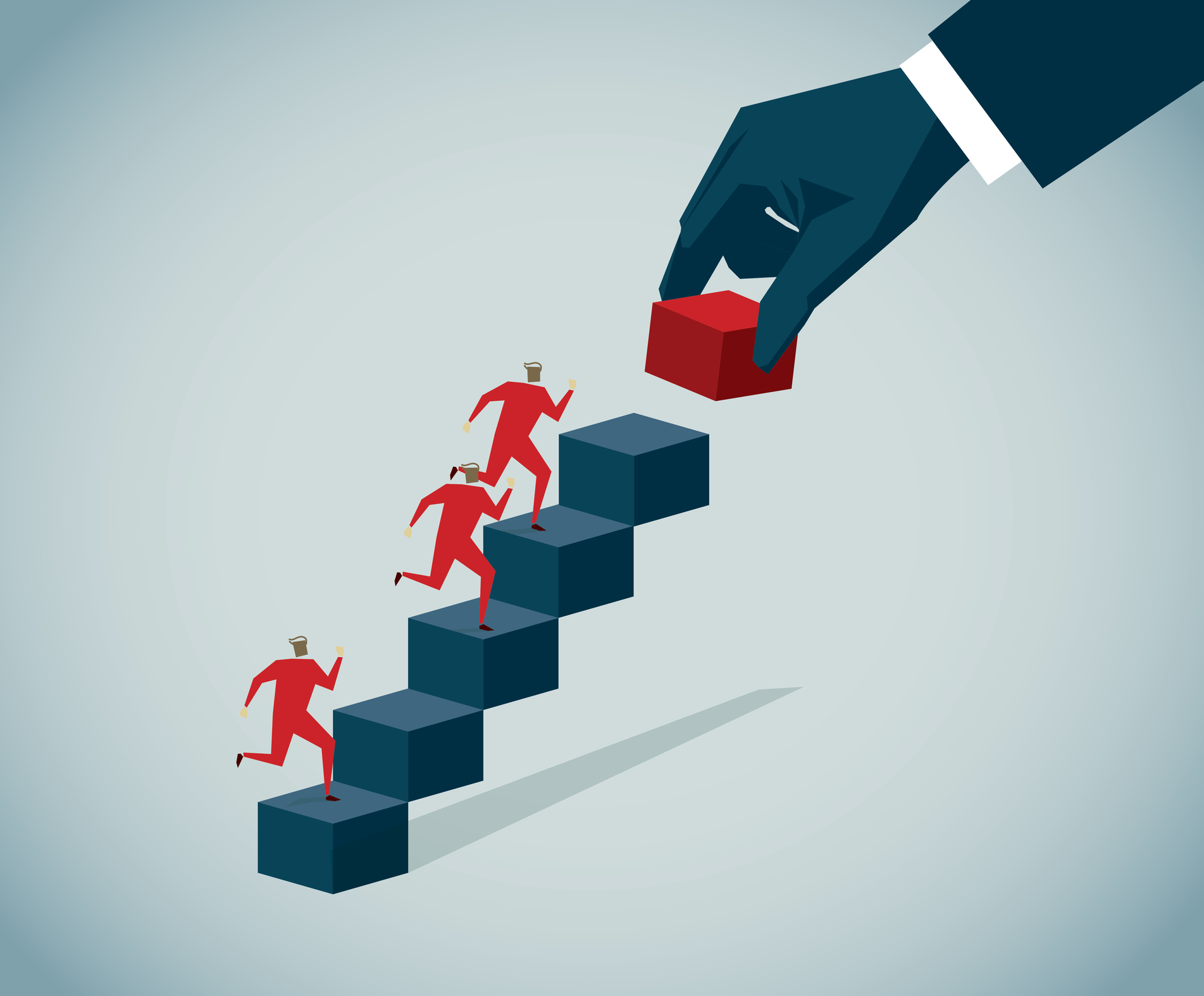
지금까지 두세 번 혹은 그 이상 사업을 해본 숙련된 사업가라면 성공 가능성이 좀더 높을 것이다. 실제로 잘 알려진 사실이지만 투자자는 비록 이전 사업이 잘 안됐더라도 연쇄 창업가를 선호하는 이유이기도 하다. 경험 자체는 성공만큼 중요하기 때문이다. 누군가는 이렇게 말할지도 모른다. 성공이 아닌 실패를 겪은 만큼 다음에 올 기회를 성공으로 이끌 가능성을 높일 수 있을 것이라고.
만일 처음 사업을 하는 경우라면 이런 말을 보면 낙담할 수도 있겠다. 불공평하게 느낄 수도 있다. 하지만 숙련된 사업가 누구라도 한때는 회사를 처음 설립한 초보 창업자였다. 본인이 가진 단점을 어떻게든 메울 방법이 없는 상태로 첫 사업을 시작했다는 얘기다.
숙련된 사업가의 자신에 찬 모습을 흉내낼 수 있는 방법이 하나 있긴 하다. 바로 일이 크든 작든 상관없이 일단 시도해보고 실패해볼 수 있게 스스로에게 경험을 허락하는 것이다. 스스로 자신감을 갖고 행동할 역량을 기르려면 2가지 요소가 필요하다. 하나는 경험 자체다. 가령 과거 시리즈A 펀딩을 받아본 적이 있다면 그 뒤부턴 같은 시리즈 펀딩을 받을 때 자신 있게 일을 진행해나갈 수 있다는 식이다. 이는 본인보다는 외부 요소 그러니까 실제 경험이 필요한 부분이다.
다음은 실패의 결과를 직접 겪어보는 것. 직원을 한번도 해고해본 적이 없다면 예상되는 결과가 두려워 실제로 행하지 않으려 할 것이다. 일단 한번이라도 이를 경험하게 된다면 그 다음부턴 훨씬 수월하게 같은 일을 반복할 수 있게 될 것이다. 생각했던 최악의 상황을 실제로 겪어보니 그렇게 나쁘지만은 않다는 걸 느끼는 것이다. 외부 시각에서 본다면 뭔가 자신감에 찬 모습처럼 보일 수 있다. 암벽을 등반하는 두 선수가 있다면 한 명은 자신감에 차보이고 다른 하나는 그렇지 않은 모습이라면? 두 선수 모두 같은 암벽을 등반하고 있지만 자신감에 찬 쪽이 훨씬 더 좋은 성과를 낼 것이다.
한 걸음 더 나아가 얘기해보면 수많은 창업자가 스스로 부여한 압력에 어려움을 느끼곤 한다. 실패하는 것 자체를 두려워한 탓이다. 실패에 대한 두려움은 스트레스 증가에 영향을 준다. 암벽을 타다가 떨어질 걸 두려워할수록 실제 등반도 어려워질 것이란 말이다. 하지만 실패를 겪어봤고 앞일이 예상되어 두려움이 줄어든 상태라면 이에 대한 스트레스를 안 받게 된다는 것만으로도 더 자신감 있는 모습을 보여줄 수 있게 된다.
실제로 어느 정도의 자신감이 경험에서 비롯되는지 여부를 말하기는 어렵겠지만 개인적으로 봤을 땐 꽤 많은 부분을 차지할 듯싶다. 속으론 두려워하면서 겉으로 보기에만 자신에 찬 모습을 말하는 게 아니라 진짜 자신 있다고 느껴지게 보이는 진정한 자신감을 말하는 것이다. 실제 경험이 자신감에 큰 도움이 되는 한편 실패에 대한 도움을 줄이는 것 역시 좋은 대안이 될 수 있다.

스스로에게 실패할 권리를 주는 건 성공에 대한 기대감을 낮추라는 말과는 다르다. 스스로 목표를 높게 잡고 이를 위해 최선을 다해야만 할 것이다. 진짜 문제는 그럼에도 결국 실패를 겪게 됐을 때 어떤 일이 일어나게 되냐는 것이다. 실패했다고 해서 세상이 끝날까? 아니면 실패를 스스로 용납하고 계속 앞으로 나아갈 것인가. 후자의 경우를 반복해왔다면 주변에선 당신의 자신감을 보게 될 것이다. 작은 것으로 실패 경험에 익숙해지고 나면 더 큰 일에 도박처럼 운을 걸어볼 수 있게 된다. 스타트업 세계에선 이 방법이 종종 승리의 공식이 되기도 한다.
경험을 또 다른 단어로 말해보자면 스스로에게 실패할 수 있는 권한을 준다고 할 수 있겠다. 아무 것도 하지 않고선 경험 자체를 얻을 수 없겠지만 스스로에게 실수해볼 수 있도록 허락하는 행위는 대부분 좋은 결과를 가져올 것이다.
이 글을 읽는 독자 중 글로벌 진출에 관심이나 도움이 필요한 한국 스타트업이 있다면 개인 초대장으로 여기고 연락을 줘도 좋다. 페이스북이나 트위터(@aviramj), 이메일 주소( aviram@jenik.com) 모두 좋다.
Room for Error
Experienced entrepreneurs, those who are now in their second or third venture (or more) are more likely to be successful. This is a known fact, and a reason why investors prefer “serial” entrepreneurs (founders who have been through several ventures) even if the previous ones were not successful. The experience itself is as important as the success. In fact, some would argue – it’s the previous failures, not the successes, that increase your chances to succeed the second or third time.
If you are a first time entrepreneur, this is discouraging. It’s also a bit unfair – every experienced entrepreneur was once a first-time founder. You are starting with an obvious disadvantage, with no way to bridge the gap: your first startup is your first, nothing you can do about it.
Except there is one thing you can do that will “simulate” the confidence serial founders have: give yourself the permission to try and fail, in small matters as well as big ones.
Two major sources can fuel your ability to conduct yourself with confidence: one is the experience itself; if you’ve raised a series A round of funding in the past, the second time around is easier and your confidence in doing it will be obvious. This part does not depend on you, it’s external: you need the actual experience for it.
But a second source of confidence is from seeing the results of failure. If you’ve never fired an employee, you may try your best to avoid it, fearing the possible consequences. But once you’ve actually gone through this unfortunate experience, the next time you need to do it is much easier: now that you know the worse case scenario is not so bad, you’re not as fearful. For an outside viewer, it looks a lot like confidence. Think about a wall climber with confidence compared to a wall climber without confidence: they are both climbing the same wall but one of them will do a lot better.
I would go a step further: A lot of the pressure startup founders feel is self-imposed pressure. Startup founders are afraid to fail; this fear of failure fuels pressure not to fail which has an impact in terms of stress. The more you fear falling off the wall the worse your wall climbing will be. But if you been through the failure process you know what to expect and the fear factor is much smaller – you are looking more confident just by not stressing yourself out.
It’s hard to say how much of the confidence is just pure experience, but I think it’s a lot. I don’t mean the false confidence that is being projected while you are worried inside, but the real confidence that looks genuine to your surrounding because it’s real. And while actual experience is the best thing for confidence, reducing the fear of failure is a good substitute.
Giving yourself permission to fail is not the same as setting low expectations. You can set your own standard very high and do your best to meet it; the question is what happens if you fail to meet this standard. Is this the end of the world? Or do you forgive yourself for this “error” and move on? If you get used to doing the latter you’ll notice how confident you seem to those around you. Getting used to occasionally failing in small things will allow you to take bigger gambles on bigger things, and in the startup world, that’s often the way to win the game.
Experience may just be another way of saying “permission to fail” and while you can’t manufacture experience from nothing, you can synthesize this “give myself room for error” which will have, in the most part, the same effect.
If you are a Korean startup that needs help going global, I want to hear from you! Consider this a personal invitation to contact me for help. I’m on Facebook, Twitter (@aviramj) and you can email me at: aviram@jenik.com to tell me how I can help you.
You must be logged in to post a comment.